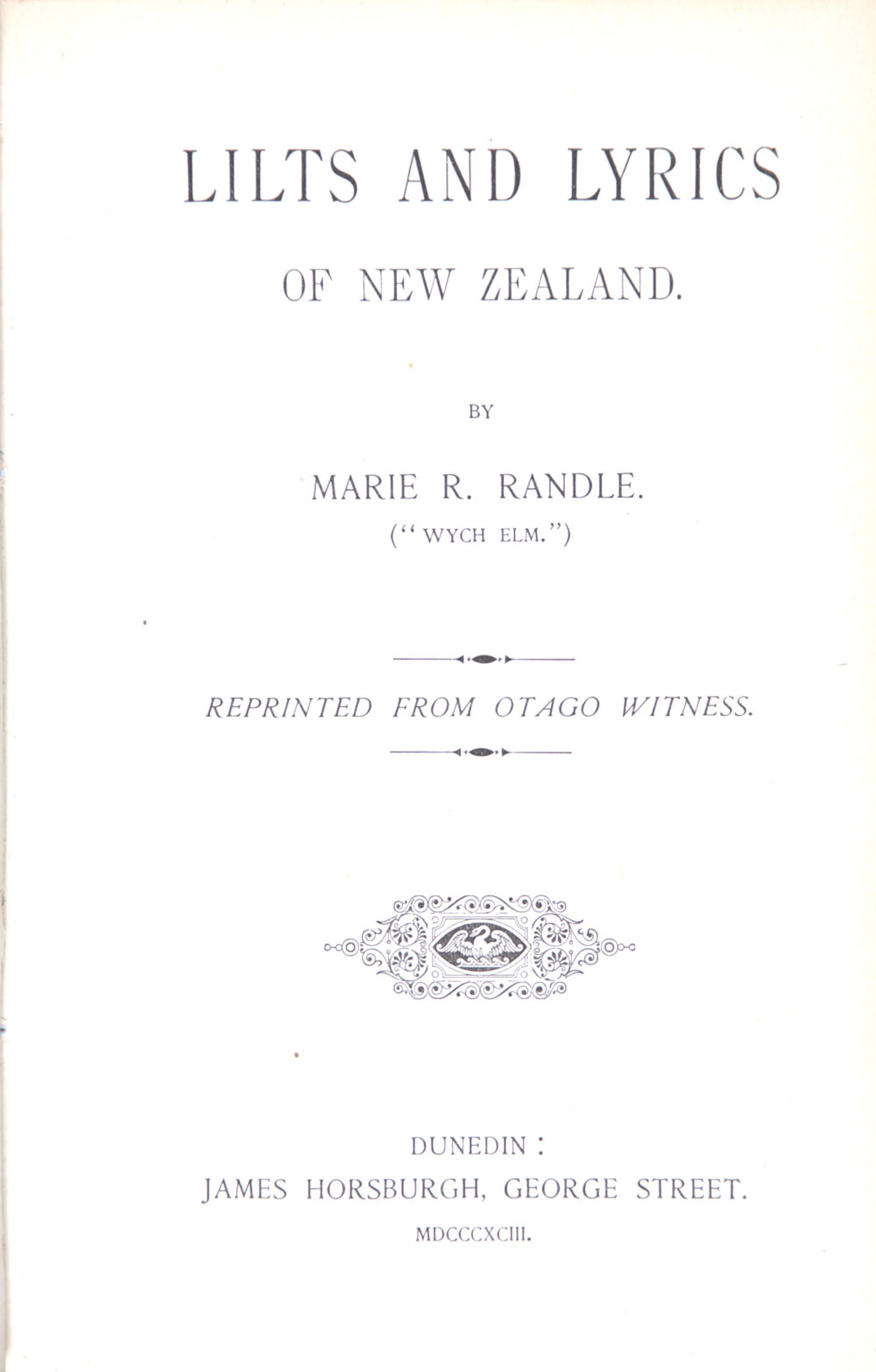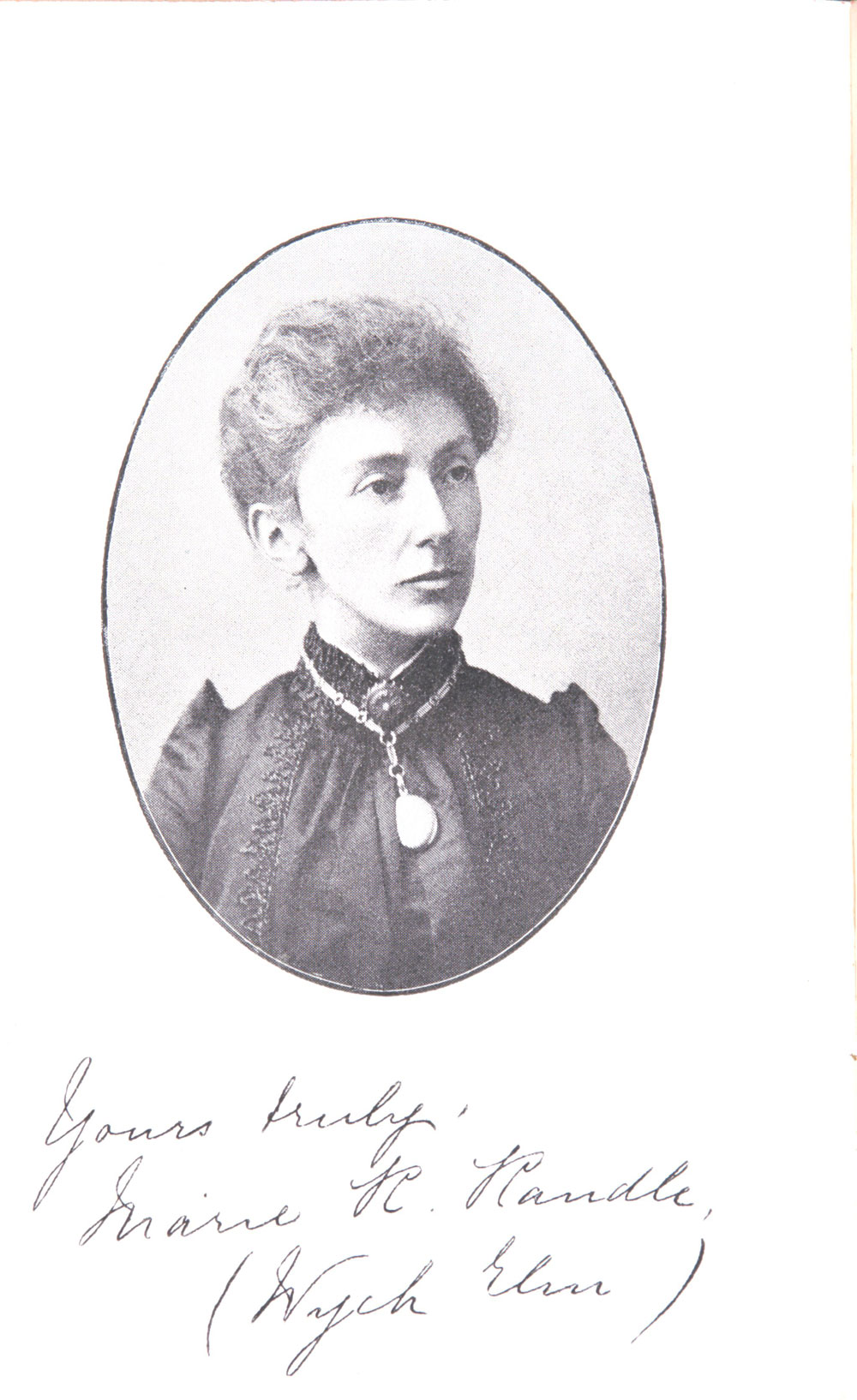Case 8
- 19th century Dunedin poets

Barr, John, 1809-1889. Poems and songs, descriptive and satirical. Edinburgh: John Greig & Son, 1861.
John
Barr (1809-1889) was born in Scotland and came to Dunedin in 1852. He farmed
for some time at Halfway Bush and later established a farm in South Otago. In
1861 he retired to Dunedin where he enjoyed a successful career as a poet,
performing frequent readings at public events. His collection Poems and songs, descriptive and satirical
was very popular and was republished in enlarged form in 1874. Like the verse
of Burns, Barr’s writing utilised Scottish dialect, was unpretentious, and
often tinged with nostalgia. Recurrent themes of his verse include distrust of
the conceited Dunedin gentry, the virtues of hard work and pride in the
progress of Otago. Barr died in Dunedin in 1889 and is buried in the Northern
Cemetery.

Barr, John, 1809-1889. Poems and songs, descriptive and satirical. Edinburgh: John Greig & Son, 1861.
Open image in new window

John Blair. Lays of the old identities and other pieces suitable for recitations and readings. Dunedin: R.T. Wheeler, 1889.
John
Blair (1836-1922) came from Edinburgh to Dunedin in 1856. After some time in
Otago he purchased a farm at Burnside. In 1872 he became the first schoolmaster
of Walton Park (now Fairfield) School, where he taught for 16 years. He lived
at Abbotsford while teaching and writing poetry, including Lays of the old identities, and numerous compositions printed in
the poetry columns of the Otago Witness.
Described as greatly learned in Scottish literature and history, as well as
music, he was for many years a respected elder at the Green Island Presbyterian
Church.

John Blair. Lays of the old identities and other pieces suitable for recitations and readings. Dunedin: R.T. Wheeler, 1889.
Open image in new window

Marie R. Randle. Lilts and lyrics of New Zealand. Dunedin: Horsburgh, 1893.
Marie
R. Randle (1856-1947) emigrated from England to Dunedin with her schoolmaster
husband Howard in 1883. She was a regular contributor to the poetry columns of
the Otago Witness under the
nom-de-plume of ‘Wych Elm’. Her poems were subsequently issued in book form as Lilts and lyrics of New Zealand, and,
according to the Witness “met with a
most favourable reception from both press and public.” Largely forgotten today,
her most anthologised poem of her time was ‘Herdin’ the Kye’, written in Scots
dialect. Her husband Howard died in 1899 and her “departure for the Home
Country” was announced in the Otago
Witness in February 1901.

Marie R. Randle. Lilts and lyrics of New Zealand. Dunedin: Horsburgh, 1893.
A
portrait of the poet Marie R. Randle, from frontispiece.




